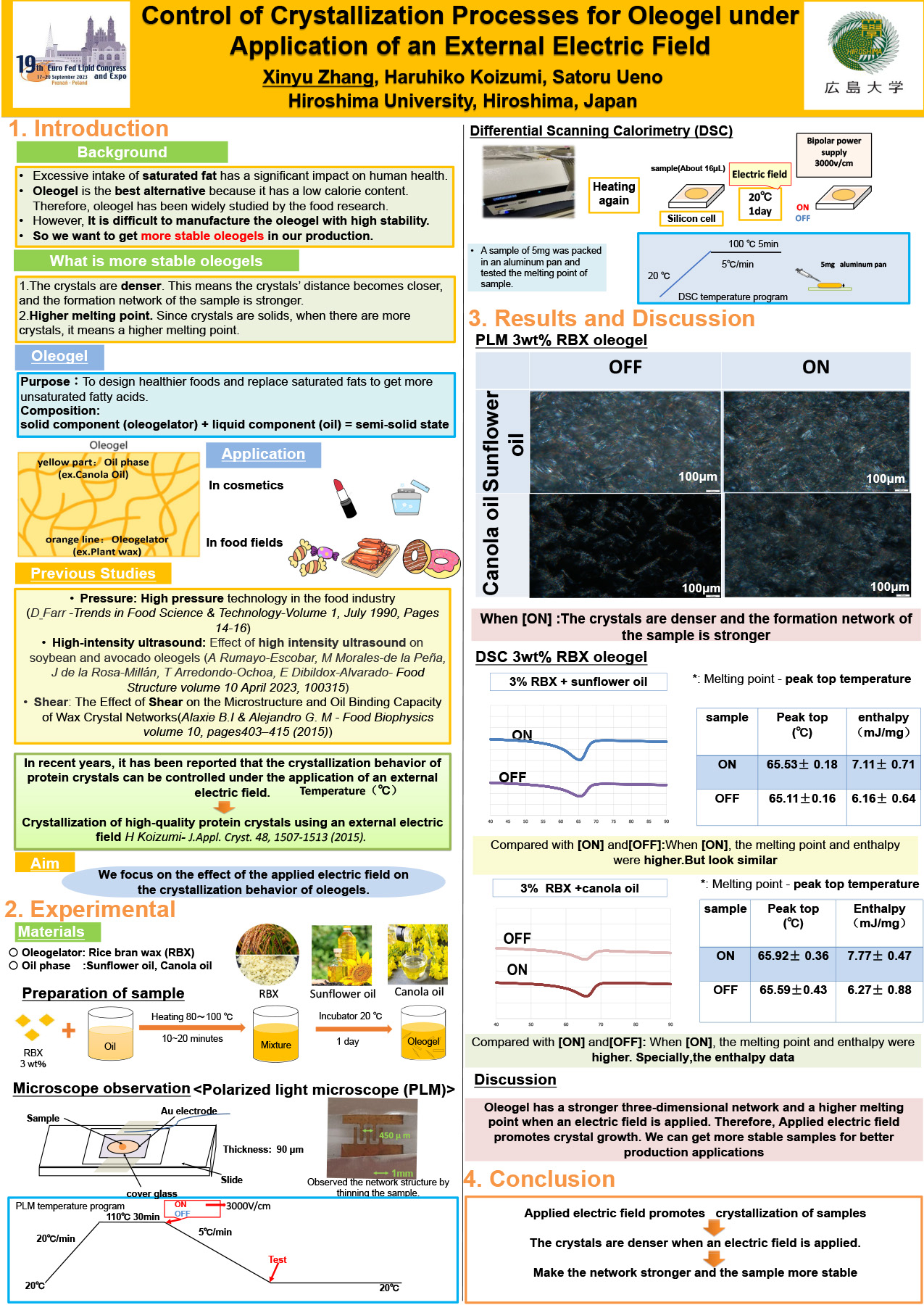Excessive intake of saturated fat has a significant impact on human health. Oleogel is the best alternative because it has a low calorie content. Therefore, oleogel has been widely studied by the food research. However, it is difficult to manufacture the oleogel with high stability. In recent years, it has been reported that the crystallization behavior of protein crystals can be controlled under the application of an external electric field. In particular, the crystal quality of protein can be improved by applying an external electric field at 1 M Hz. Therefore, we focus on the effect of the applied electric field on the crystallization behavior of oleogels. Oleogel made from sunflower oil and rice bran wax (RBX) was used as oil phase and gelators, respectively. By heating to 80 ℃-100 ℃, heating was kept for 10-20 minutes, then putting it into an incubator at 20 ℃ for 24 h. The next day, the sample was taken out, heated again and put the sample into the silicon cell. Then preparing 8 sets of samples, 4 samples were fixed in copper sheets and placed in the electric field. The other 4 samples were not connected to the electric field. Finally, all samples were placed in the device for 24 h.
To observe the structure of the manufactured oleogels a polarized light microscope (PLM) was employed. Finally, the crystallized RBX was observed. In addition, with the change of crystals, we used differential scanning calorimetry (DSC) to obtain the melting temperature, and evaluate the differences in physical properties of samples.
In PLM experiment, the images showed that the nucleation rate of the samples with an external electric field was larger than that without. In the DSC experiment, we measured the melting temperature of 71.81°C for the sample with an applied electric field and 70.65 °C for that without. This result suggests that the stability of oleogels can be enhanced by applying an external electric field.
